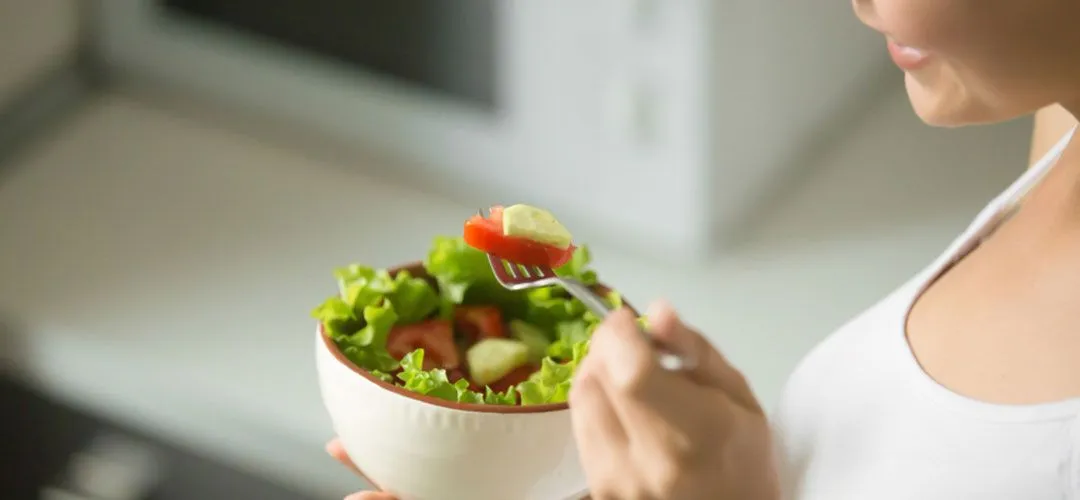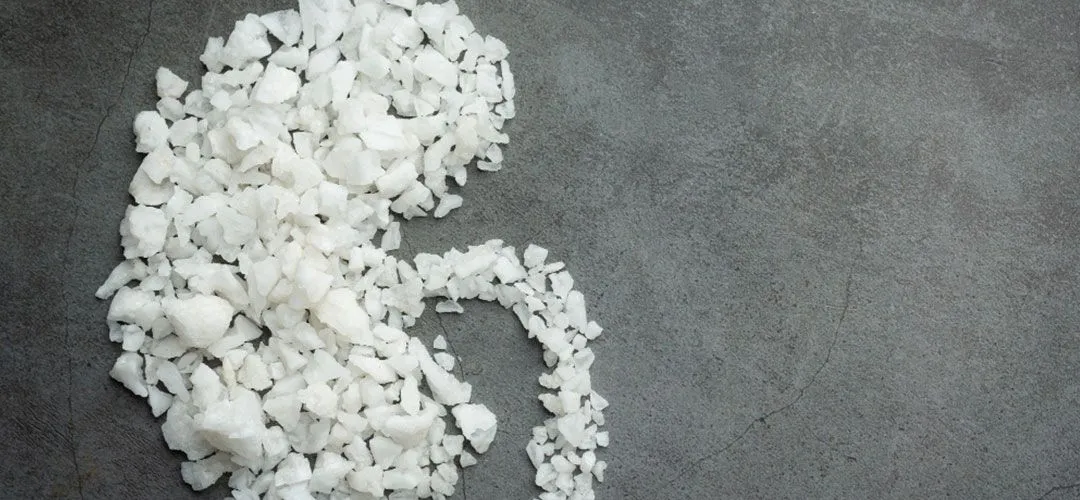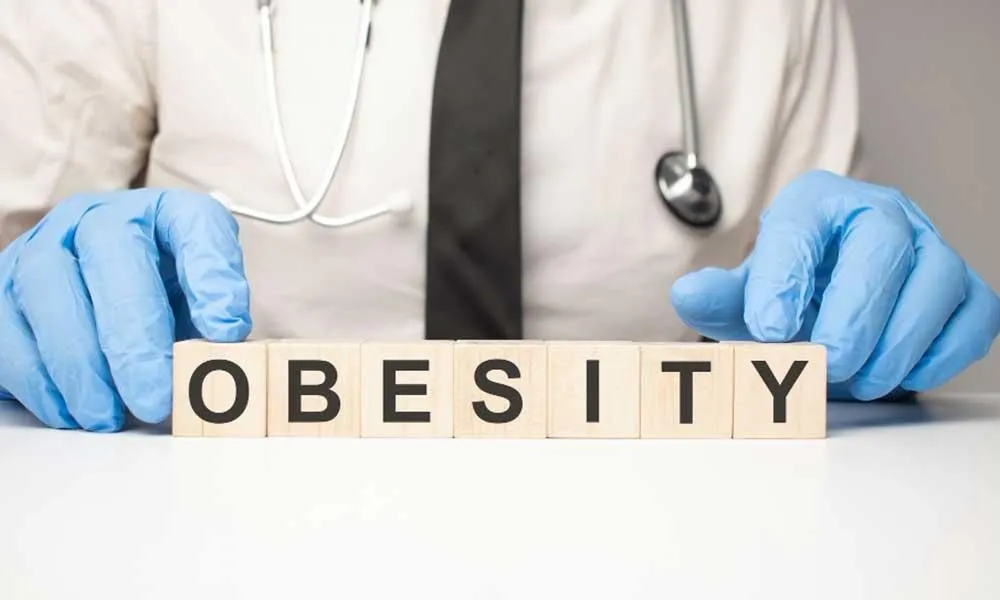Battling obesity or wondering how you gained so much flab in just a few months (or even weeks)? You are not alone, unwanted weight gain is a rampant problem in the world. It may be caused due to factors like health issues, genetic reasons, medications, or festive binging but no reason is more serious than following unhealthy eating habits.
Dietitians warn that several foods could make you gain weight. However, nothing beats the reputation of baked, fried, and fast foods as the prime culprit. Being rich in fats and carbohydrates, they may jam your digestive system with too many calories without offering much nutritious value. Such high-calorie foods are made of processed flour and are often white (like pizza, pasta, cake, etc.).
Here are some foods that might cause you to gain weight at a faster rate:
White flour
Bread
Buns
Rice
Cereal
Sugar
Protein smoothies
Nuts
Red meat
Weight-gain supplements
Salt
High-fructose corn syrup
Potatoes and starch
Oily fish
Milk and some dairy products
Junk food
Cola drinks
Alcohol
Crackers
Cookies
Cakes and pastries
Switching to healthier alternatives, for example, brown rice instead of white rice can provide you a daily dose of fiber and antioxidants. The difference between unhealthy and healthy white foods depends on how they are processed and what their fiber content is.
Many natural and unprocessed foods like onions, white beans, potatoes, and cauliflower are white too but they are not considered white food because they are healthy. The difference between unhealthy and healthy white foods depends on how they are processed and their fiber content. You may note that it has nothing to do with their color.
Healthier alternatives to weight gain-causing white foods could help you with more fiber and antioxidants. For example, yogurt is one dairy product that is a part of almost everyone’s daily life- it is delicious, satiating, and good for weight loss. It may also help you with your daily dose of minerals like (calcium and phosphorus) and proteins.
You may also go with brown rice instead of white rice and cooking foods in healthier oils like olive oil instead of mustard oil. However, the way you consume any healthier food holds the key to beating obesity and having better health.
Here are some smart tips you can use to stay healthy:
Read the food labels on products before purchasing them.
Check their sugar content and see if they are safe to consume.
Avoid foods containing any sugar or high-fructose corn syrup.
Opt for products that are made of whole grain and not of white flour.
Whole grain products are rich in dietary fiber that keeps your digestive system in top shape.
Tip: If you enjoy sugar and sweets, try natural sweeteners like banana, mango, and honey. Go for raw cacao, unsweetened cocoa, or dark chocolate without added sugar if you love chocolates. You would find the effect on your belly fat and flabby lower back in a few weeks.
If you are looking to lower your weight and BMI profile, you must stay away from foods that can cause you to go the opposite way. The trouble is that it is easier said than done, and it is not easy to resist those dietary habits that you have been following for so long.
Here are some of the foods that are high in saturated foods and can cause obesity:
Confectionaries (chocolate and toffees)
Bakery items (cakes, pastries, puddings, and cookies)
Bakery items (cakes, pastries, puddings, and cookies)
High-fat meat
Artificially-processed meat
Foods cooked in butter, ghee, oils, and fat
Oils of coconut and palm oils
Milk cream
Unsaturated fats are better than saturated fats. The ideal limit is 16 to 22 gms. of polyunsaturated and monounsaturated fats per 200 calories. Under any circumstances, the amount should not go above 60 gms. per 200 calories.
Similarly, you should not have more than 10% of your diet through saturated fats. Heart patients and those with any medical issue should not take more than 5% of their diet through saturated fats, or else it may cause you to become overweight or even obese.
To lower your BMI profile, you should include the following high-carb and low-fat foods in your daily diet:
Sweet potatoes
Oranges
Oats
Bananas
Fresh fruits
Blueberries
Quinoa
Green vegetables
You should stay away from canned and processed foods, and foods and drinks rich in unprocessed salt or sugar. These may include fast foods and cola drinks.
Those eating fast foods and cola drinks can always make it worse with smoking and consuming alcohol. These bad habits can cause you to gain more fat and thus have a higher Body Mass Index. One reason for this observation is that such indulgent eating habits are centered on taste and not on nutritional value.
Eating fast foods is not bad per se, but relying on it to complete one’s dietary requirements is not correct. Such foods are rich in processed salts and sugars, and can quickly hurt your metabolism and digestive system. Children and teenagers eat such fast foods more and are thus prone to obesity or at least at a higher risk of being overweight.
Obesity and sluggish metabolism could be just two terms in medical science but they form a harsh reality for several million people around the world. However, there are several underlying and lesser-known reasons that could be driving a person to be flabby. Some of these reasons are as follows:
Supersaver packs are lucrative as they save money in comparison to individual portions but what is worth noticing is that it may also lead to over-serving yourself. Rather than just measuring the portions with your eyes, you should use a spoon to measure them. One should also control food portions and avoid going overboard with indulgent foods.
Counting calories is helpful when you want to lose weight but it may also mislead you. There are many yogurt options out there in the market that are low in calories but along with this, they have lower quantities of proteins. Please follow this free resource to know about how many calories you should have in a day.
Adding your favorite toppings to your cereal or yogurt may seem to be a great idea, but it could make you fatter and chubbier. When you add toppings like nuts, cereal, fruits, or honey, you might be unknowingly converting your snack into a full meal. The more you add, the worse it becomes.
Parfaits may look attractive but they are quite unhealthy. They are full of fats and calories, and are packed with excess sugar. The more you eat these delicacies, the worse your weight management becomes. If you’re in a rush, go for a regular packaged yogurt or make a parfait at home to have better control over its ingredients.
Fat-free products use sugar to compensate for the taste of the actual item. Several dairy products are naturally sweet but their artificial variants may still be topped with more sugar to boost the taste. Instead of fat-free options, you can choose low-fat products to get enough protein but less sugar.
Tip: A common rule of thumb for all diabetics is to avoid products that have more than 18g of sugar in one serving or have the first ingredient as sugar on the product label.
Full of healthy gut bacteria, probiotics are always healthy and can be had in the morning or evening. Checking the nutrients is important or else you might load your diet with fermented foods, a habit that can hurt you. It may cause bloating and mild abdominal discomfort, and even allergies in severe cases.
Good carbs or complex carbohydrates are more filling and nutritionally rich because they are high in fiber, minerals, and vitamins. Unhealthy white carbs or refined carbs/sugars are easily digested and absorbed by the bloodstream. This raises blood glucose levels and stimulates the production of insulin.
Insulin is a hormone that converts excess sugar to fat and switches to glucose as a prime source of energy. Increased blood sugar and insulin levels may trigger food cravings, thus leading you to binge eating. Most people go for refined carb products (like candies, sodas, and packaged fruit juices) that have zero nutritional value and this only makes matters worse.
Suggested article: Know Why You are Not Losing Weight? Weight Loss Myths Debunked!
Sugar is difficult to give up on. According to theAmerican Heart Association, Americans consume an equivalent of 22 teaspoons of sugar from their food and drinks, particularly soda and candy. These calories can add up with time and cause major weight gain.
Most sugary foods provide little to no nutritional value, regardless of whether you eat a sugary fruit juice or a piece of candy. Indulging in such habits only leads to more sweet cravings and this may result in diabetes, obesity, and heart diseases. Being a compulsive eater only makes it worse.
A low-salt or low-sodium diet is a special diet that does not include 1.5g of salt (for women) or 2.4 gm of salt (for men) per day. Such diets are advised for people suffering from health issues like kidney stones, abnormal blood sugar and blood pressure levels, hyperactive thyroid, and heart diseases. This diet can help them reduce the effects of excessive sodium in their urine and bloodstream.
Salt (Chemical name: Sodium Chloride or NaCl) is not exactly a white carb and we do need it in a small amount every day. As an important electrolyte, it helps in the proper absorption and transportation of nutrients in the intestines during the process of digestion. This naturally occurring mineral also powers up the cardiac system to maintain proper blood pressure and blood sugar levels.
Its excess may quickly lead to water retention, thus burdening the hearts and kidneys to filter out excess sodium from the bloodstream. One may feel bloated and too thirsty, and too much salt in your bloodstream may also lead to a serious health issue called hypernatremia. It might even prove fatal.
Salt, although not a white carb, is still white and most of us need to reduce it in our diet. You do need a small amount of salt in your diet because it is an important electrolyte but you should stay away from consuming too much of it.
Here’s why you should go for a low-sodium diet:
Cuts your food intake
Controls salt cravings
Reduces pain in head and back
Reduces blood pressure and bad cholesterol
Reduces the risk of kidney diseases
Reduces the risk of thyroid and diabetes
Builds stronger bones
Improves blood circulation
Improves memory
Reduces the risk of forgetfulness
Softens the heart’s arteries
Prevents indigestion
Cuts the risk of heart ailments
Improves eyesight
Cuts insulin resistance
Reduces swelling and pain in joints
Improves digestion
The saltiest foods are often the unhealthiest. This includes fast foods (like French fries), cookies, chips, processed soups, canned products, etc. Salted nuts and other products containing added salt should be avoided as much as possible too.
A tablespoon of salt contains 2,325 mg of sodium. This is more than the daily recommended dietary value by most health experts worldwide.
Your daily intake of salt should be less than 2300mg- this is equal to about 1 tablespoon of salt every day. This dietary requirement is recommended by the US Food and Drug Administration. You can compensate for some part of this dietary requirement from natural food sources like fruits and vegetables too.
The biggest health risk of an increased salt intake is water retention.
Though common salt may not be not directly linked to fat storage in the body, it may lead to an accumulation of water in the body cells. Salt holds water back in your body even though it should be flushed out. Reducing the intake of sodium chloride (common salt) and eating unhealthy white carbs can cause you to gain weight at a much faster rate. It may also cause discomfort, pain, and swelling.
The key to staying healthy is to observe a fitness-centric lifestyle that minimizes the role of indulgent eating and drinking habits. It is important to stay away from bad habits like emotional eating and being addicted to alcohol, and the best way to counter such issues is to follow a fitness-based routine.
It is important to stay away from (or at least) limit the intake of foods that could make you fat or flabby, especially on your belly or lower back. The saltiest foods are often the unhealthiest, such as fast food, cookies, chips, processed soups, canned products, etc. Such foods and other products containing added salt should be avoided for the best results.
We recommend consulting a nutritionist over a video call to know what works best for you. She can also help you with a personalized diet plan as per your dietary and fitness requirements, and tips about how you may live a healthier life. Consulting a fitness or yoga expert too would have a positive effect in the longer run.
You can follow these professionals’ tips to improve your fitness, to cut down on extra flab, and to get into better shape. We also recommend that you follow this link to take an alternate viewpoint on chalking out a plan for yourself as per your daily dietary requirements.
Remember, weight loss is a holistic process that becomes much easier to adopt when you choose healthy and satiating foods to beat your indulgence.



